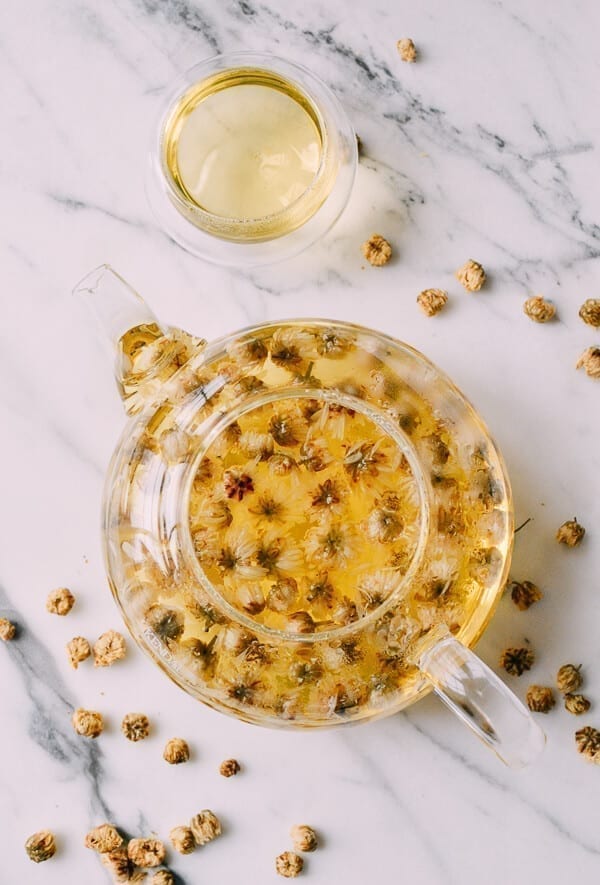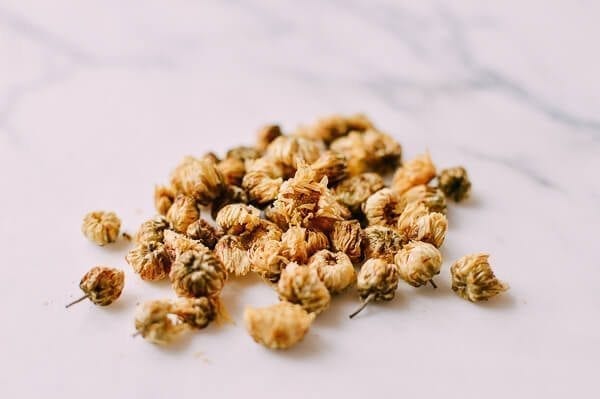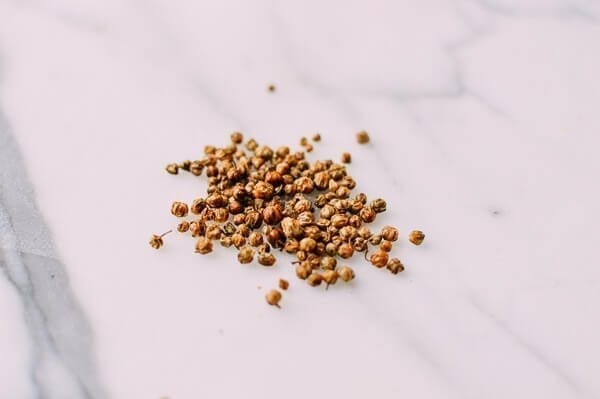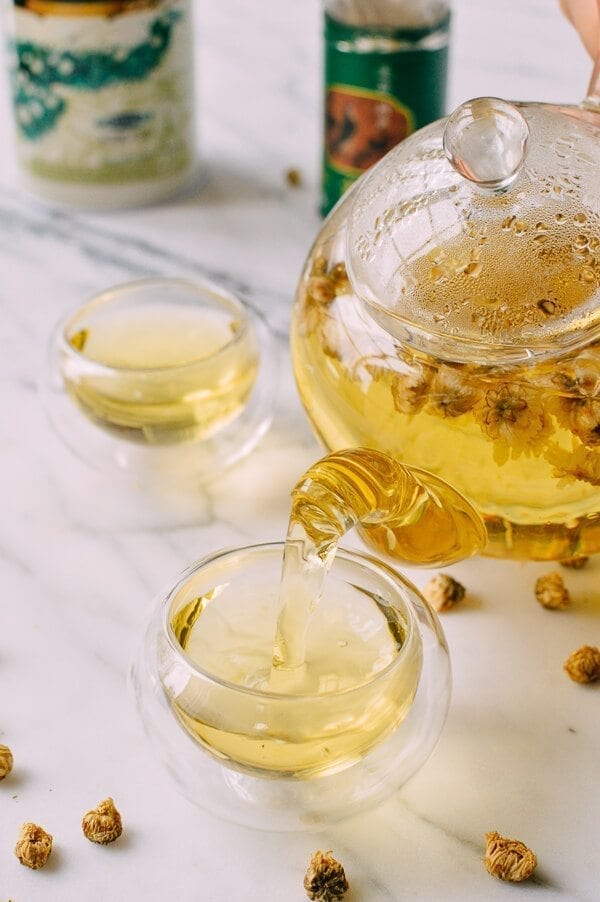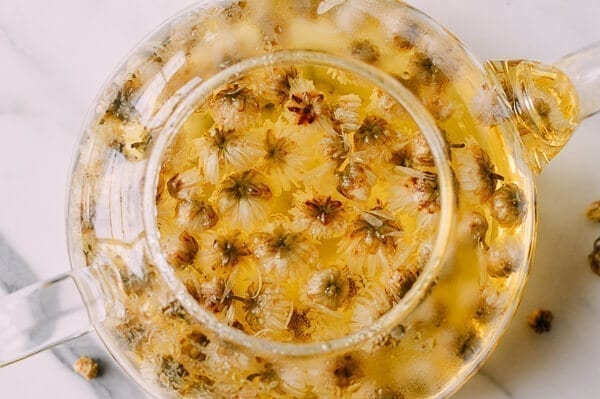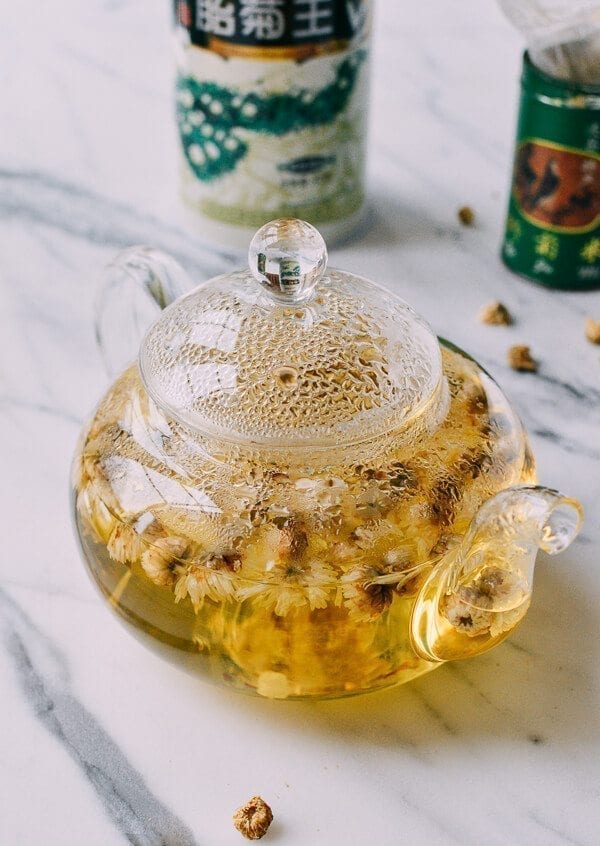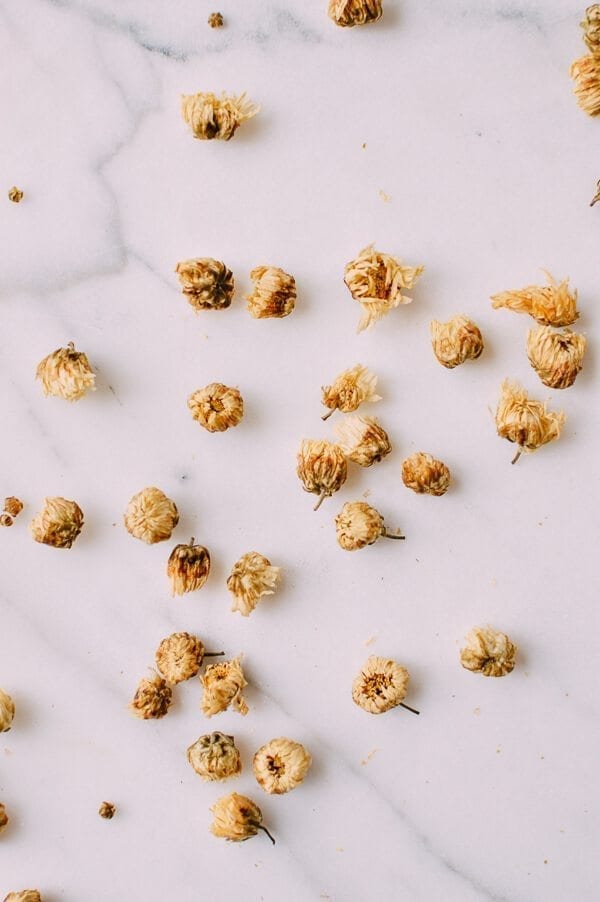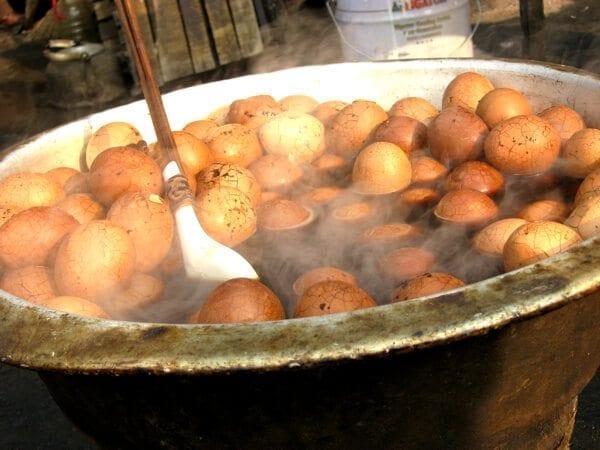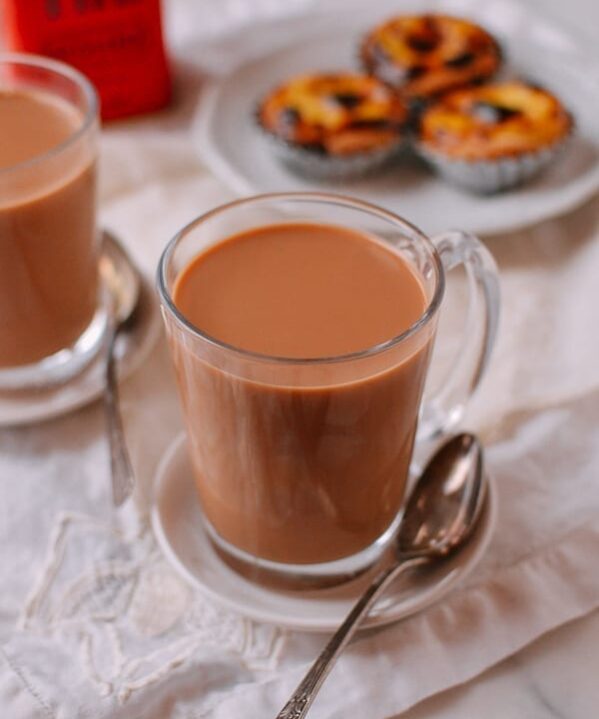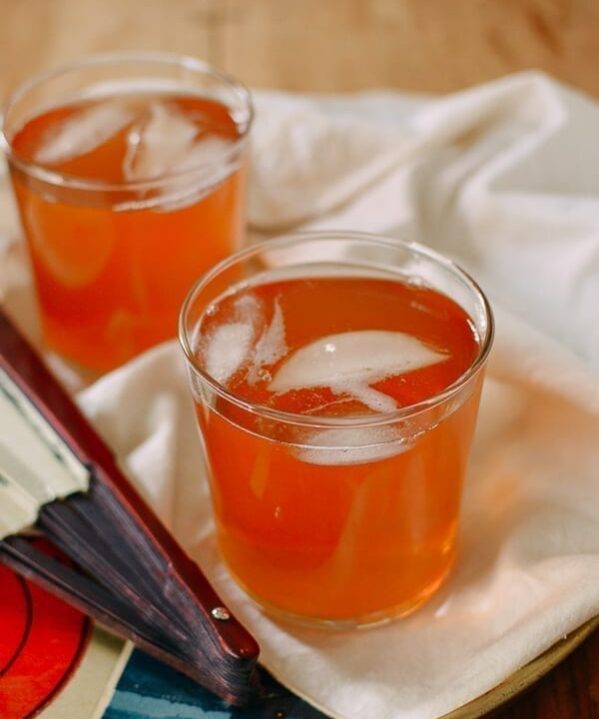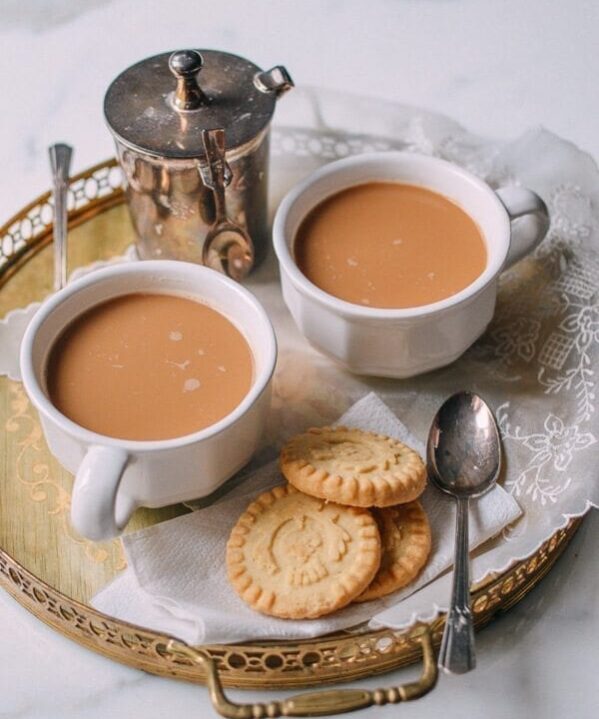This is less of a recipe and more of a PSA about some of the health benefits of Chinese chrysanthemum tea. I’m no expert or technically qualified to give health advice, but I was once a very very grumpy chrysanthemum tea drinker and have since become a pretty strong and zen believer in its abilities to ward off various ailments!
Chrysanthemum Tea Benefits
Chrysanthemum tea is said to have a host of health benefits, and it has definitely become my go-to when I’m feeling under the weather. It may help you reduce inflammation, serve as a good source of vitamins A and C, and lower blood pressure and cholesterol.
In particular, inflammation is a huge culprit of a lot of the standard ailments I deal with in my day-to-day––ranging from minor annoyance to full-on conditions that take me out of the game for a few days.
In Chinese medicine, inflammation is associated with being “too hot” or having too much “heat” in terms of your body’s overall physical balance. This can manifest in a multitude of ways, from dry mouth to skin breakouts.
Fried foods (Fried wontons, anyone?), grilled foods (Yang Rou Chuan–who can resist!) and spicy foods (mmm…Spicy Beef Noodle Soup) are said to cause this internal “overheating” effect in Chinese medicine, and I’ve found that chrysanthemum tea is a great agent for rebalancing the body.
In China, chrysanthemum tea is commonly accepted as a great health drink for its cooling and calming effect, to the point that people from all walks of life can be found chugging it by the thermos-full throughout the day. You’ll see big thermoses on young white collar workers’ desks, in the cupholder of your taxi driver’s car, and toted around by old grandmas in the street.
A Mom’s Advice for Chrysanthemum Tea Drinking
I could go into even more depth about the medical aspects of Chinese chrysanthemum tea and what it can do for you, but Chinese tradition dictates that some sort of matriarch from on high just boss you around, offering cryptic home remedies (looking at my mother, right now).
No reason to break from tradition, so. My mom says you should drink chrysanthemum tea if you…
- are feeling stressed out or experiencing anxiety
- have a headache or migraine
- want aid digestion after a heavy meal
- are breaking out with acne or a rash
- have a cold sore or canker sore, or feel one coming on (ick, I know)
- have high blood pressure and/or cholesterol
- are trying to lose weight or boost your metabolism
While chrysanthemum tea has worked wonders for me, my mom always warns me against drinking too much of it, as *apparently* otherwise my inner Qi will become too cool. I know all the Chinese moms out there mean well, but it’s literally always hot-cold, hot-cold with this stuff, amiright?
What Does Chrysanthemum Tea Taste Like?
In terms of the taste? Well. When people see me drinking chrysanthemum tea and ask me what what it tastes like, suffice it to say that it tastes just how you think it would taste: like dried flowers.
Adding a bit of sugar or honey can improve the taste if you prefer! But I find the flavor to be incredibly pleasant when eating strongly flavored Chinese dishes with lots of spice, and it takes on a richer herbal flavor the longer it steeps.
It can also have a more subtle flavor the more times you refill the teapot with hot water. Serve it with ice in the summer, and it will have you feeling cool and calm in no time.
Plus, with so many different kinds of chrysanthemum teas, feel free to experiment! In this post, we’re showcasing a more standard variety and a very small variety that uses tiny flower buds. Try to look for closed or half opened flower buds when purchasing your tea, as fully opened flowers (while pretty) have already lost much of the flavors and effectiveness!
We hope you give chrysanthemum tea a try! It may just be nature’s elixir for whatever problem you’ve currently got.
To make chrysanthemum tea, you’ll need:
Place your tea in a teabag or tea strainer of your choice. Due to the nature of this tea, the petals can really get in the way of your drinking experience, so best to tie up the tea in a tea bag or cheesecloth, grab a tea strainer, or use a teapot with a built-in strainer.
Boil 3 cups of water, and pour over the tea. Let steep for 3 – 5 minutes.
You can continue to add water to the tea for 2-3 more batches of tea. The chrysanthemums have a strong and persistent flavor. Many people can use a single serving of chrysanthemums for the whole day!
Enjoy a nice pot of chrysanthemum tea today!
Chrysanthemum Tea Benefits (and How to Make It)

Ingredients
- 0.2 ounces dried chrysanthemum tea (about 5g)
- 3 cups water
Instructions
- Place your tea in a teabag or tea strainer of your choice. Due to the nature of this tea, the petals can really get in the way of your drinking experience, so best to tie up the tea in a tea bag or cheesecloth, grab a tea strainer, or use a teapot with a built-in strainer.
- Boil 3 cups water and pour over the tea. Let steep for 3 - 5 minutes. You can continue to add water to the tea for 2-3 more batches of tea. The chrysanthemums have a strong and persistent flavor. Many people can use a single serving of chrysanthemums for the whole day!
nutrition facts
